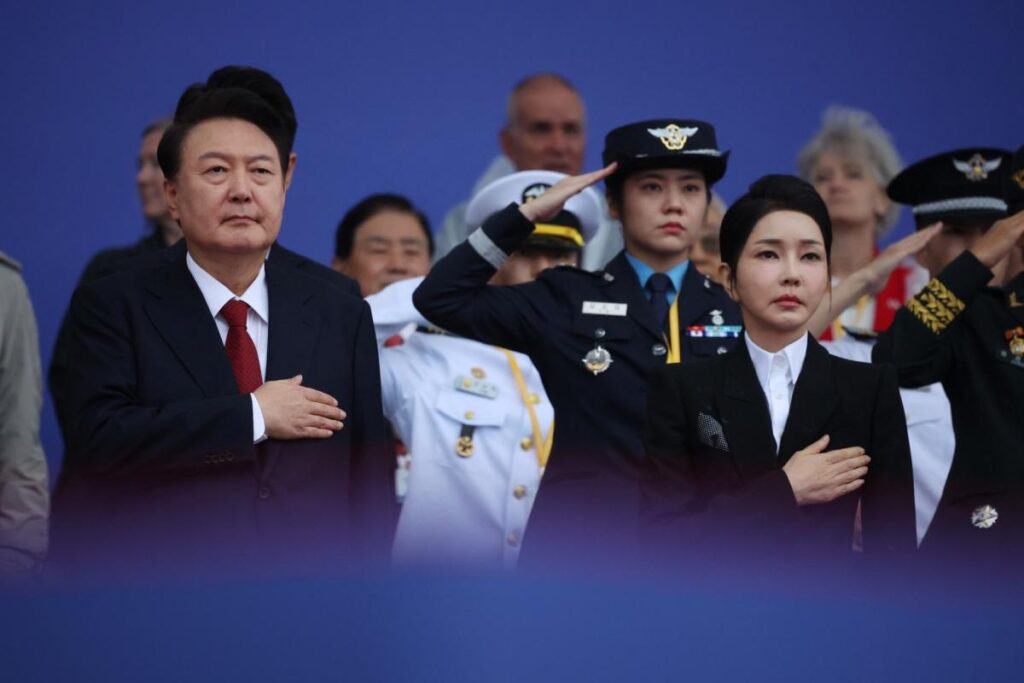In the ongoing political discourse surrounding South Korea’s government, legal scholars specializing in constitutional law have strongly defended the right of the National Assembly to appoint a special prosecutor to investigate President Yoon Suk Yeol’s wife, Kim Keon Hee, over allegations of stock manipulation. This response comes in light of Yoon’s assertion that such an appointment would be unconstitutional and infringe upon the separation of powers delineated in the nation’s constitution. Legal experts contend that the actions taken by the opposition-led parliament fall well within their legally granted authority, highlighting that the constitution allows for independent administrations to operate outside the direct oversight of the president. This argument is bolstered by a historical precedent wherein the Constitutional Court upheld the legality of special prosecutors, emphasizing that the legislature holds the prerogative to initiate investigations into potentially politically charged issues.
During a press conference, President Yoon made a pointed critique of a bill supported by the opposition Democratic Party, which aimed to appoint a special prosecutor to investigate his wife. He proclaimed that such decisions and investigations should be distinctly within the executive branch’s purview, arguing that allowing parliament to assume this role contradicted fundamental principles of liberal democracy. He further characterized the bill as a violation of constitutional separation of powers, a claim legal scholars dispute, arguing that the existence of independent agencies with executive functions does not contradict the constitution. Indeed, they suggest that under the current legal framework, the appointment of special prosecutors is a recognized process intended specifically for situations where political conflicts render investigations vulnerable to bias.
Experts Kim Hae-won and Son In-hyuk reiterated that the particular circumstances cited by Yoon do not undermine the legislature’s authority to appoint a special prosecutor. They highlighted that the constitution mandates decisions within the legislative domain to be made through majority votes, and not necessarily through consensus among parties. If a bill is properly enacted according to constitutional procedures, its legitimacy stands irrespective of the mixed opinions among political factions. This stance is consistent with previous rulings by the Constitutional Court, confirming that the legislature can operate independently of the executive branch regarding special prosecutor nominations.
The emphasis on an independent legislative capability is historical, as demonstrated by past Special Prosecutor investigations that proceeded without bipartisan agreement, notably during significant political scandals. Such inquiries have addressed various high-profile issues in the country’s political landscape, showcasing the legislature’s role in investigative processes during times of controversy. Additionally, the current scenario holds personal relevance for President Yoon, who played significant roles in previous investigations as a prosecutor, most notably leading to the impeachment of his predecessor, Park Geun-hye. Critics now question the implications of his opposition to a similar investigative process directed at his wife.
The scrutiny surrounding Kim Keon Hee escalated following allegations relating to stock manipulation activities linked to various financial dealings with Deutsch Motors, a BMW dealer in South Korea. While initial prosecutors decided not to pursue charges against her, the political pressure and ongoing public interest have led opposition lawmakers to push for a formal investigation. The National Assembly recently adopted a bill to appoint a special prosecutor, which is expected to be challenged by President Yoon, who may veto the measure on similar constitutional grounds stated earlier. Such actions highlight the intersection of legal authority and political maneuvering in South Korea’s contemporary political climate.
Overall, the controversy underscores broader themes regarding executive power, legislative independence, and the role of the judiciary in safeguarding constitutional principles. As debates continue, the situation presents an opportunity for the judicial system to reaffirm its stances on the separation of powers while addressing public concerns regarding accountability in the highest levels of government. Legal scholars maintain there is significant precedent to support parliamentary actions, suggesting that despite the president’s current stance, the constitution’s framework is intended to facilitate checks and balances essential for a functional democracy. As national attention remains focused on these allegations and political tactics, the outcome of this discourse may have lasting implications for South Korea’s political landscape and the enforcement of its constitutional norms.

